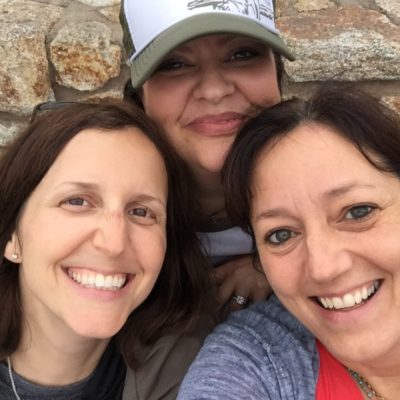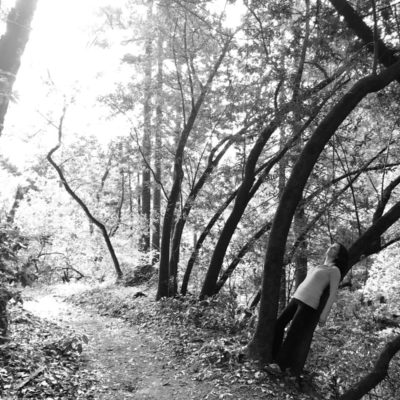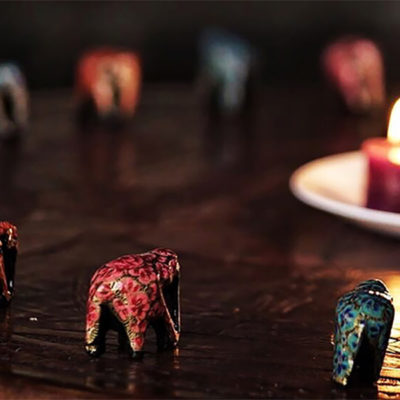Samantha’s ReFresh: I Need To Take Care Of Myself First
Samantha Watson participated in the 2017 ReFresh Experience For Cancer Advocates in San Francisco. She is a two-time young adult cancer survivor and co-founder of The Samfund, which offers programs and services for young adult cancer survivors after treatment.
Answering the call to ReFresh
 How do you explain – to someone not physically there – what a life-changing, six-day retreat feels like? How do you find words to accurately describe what you did, what you talked about, what it feels like to expose the most vulnerable parts of yourself to total strangers, and how those total strangers, after less than 24 hours, become trusted and lifelong friends? How do you explain where you went and why it was exactly what you didn’t want to admit you needed? How do you possibly find an answer to the question, “So… how was it?” when you get back?
How do you explain – to someone not physically there – what a life-changing, six-day retreat feels like? How do you find words to accurately describe what you did, what you talked about, what it feels like to expose the most vulnerable parts of yourself to total strangers, and how those total strangers, after less than 24 hours, become trusted and lifelong friends? How do you explain where you went and why it was exactly what you didn’t want to admit you needed? How do you possibly find an answer to the question, “So… how was it?” when you get back?
You can’t. So you don’t.
When Terri called me earlier this year to tell me her idea for ReFresh, it was instantly validating and completely terrifying. She gave a name to something I had been struggling with but had tried to suppress in favor of just getting it done. All of the reasons why I hesitated to book my ticket – kids’ busy schedules, being short-staffed at work, too much travel in too short a timeframe – were exactly the reasons I needed to go. Terri knew that before I did, and to her credit (and with much gratitude on my part), she stayed on me until I sent her my flight reservations, two weeks before I left.
Addressing burnout
Burnout. Such a scary word. It comes from different sources for different people and this retreat was designed with all of us in mind. Professionally, we are trying to accomplish a lot with very limited resources. We see enormous need but are unable to meet it singlehandedly. We face unspoken competition in the nonprofit cancer community that often gets in the way of true collaboration. Personally, the cancer space is exhausting. We lose people far too often. We relive our own experiences more than we want to, and yet need that first- or secondhand experience to empathize and relate to others in a meaningful way. It is draining. Still, I hesitated to attend the retreat. What would it mean if I publicly acknowledged that feeling of being stretched so thin that nothing I was doing, personally or professionally, was being done to the best of my ability? Was it admitting defeat if I finally waved the proverbial white flag and said I needed help?
 In a word, no. The single most valuable thing I learned in those five days at ReFresh was that I need to take care of myself first. It took being 3,000 miles away from everything to see things clearly: that in my commitment to The Samfund and our young adult community, I had lost my work/life balance. I had become a distracted parent. A tired spouse. A forgetful friend.
In a word, no. The single most valuable thing I learned in those five days at ReFresh was that I need to take care of myself first. It took being 3,000 miles away from everything to see things clearly: that in my commitment to The Samfund and our young adult community, I had lost my work/life balance. I had become a distracted parent. A tired spouse. A forgetful friend.
Giving myself permission
At the retreat, the word “permission” kept coming up. What I realized was that I had stopped giving myself permission to turn my work brain off. In the nonprofit community, there’s this pressure to get as much done as possible because people who need help are depending on you. There’s also this nagging guilt that whatever you do will never be enough, which strangely becomes motivation to try to keep doing more. ReFresh was a much-needed jolt to my system. I left San Francisco feeling like I could give myself permission to be more present in other areas of my life. When I got back to Boston, it was with a clearer mind and renewed energy.
Part of the reason it took me so long to write this post is that I have been busy making changes since I got back. I turn my phone off (some, not all, nights, if I’m being honest – but still an improvement) when I get home from work. I take a mental health day when I need one. I’ve started saying no. It takes a constant, conscious effort to separate myself from my work, and while there are still times when I’m emailing at 6 a.m. or putting in 12-14 hour days when I travel, it’s more scheduled than automatic. And that has made a tremendous difference.
As I write this, that feeling of vulnerability comes flooding back. This time, instead of ignoring it, I will choose to face it head on and keep writing. Burnout – especially as a cancer advocate and nonprofit leader – needs to be acknowledged because only in doing so can we keep going. By talking about it not as a sign of failure but as an opportunity for growth, we can find (and offer) support and together create a new path forward. To Terri and Janet, A Fresh Chapter, and my #AFCTribe, thank you for those six much-needed, liberating, exhausting, life-changing days. I will forever be grateful.



No Comments